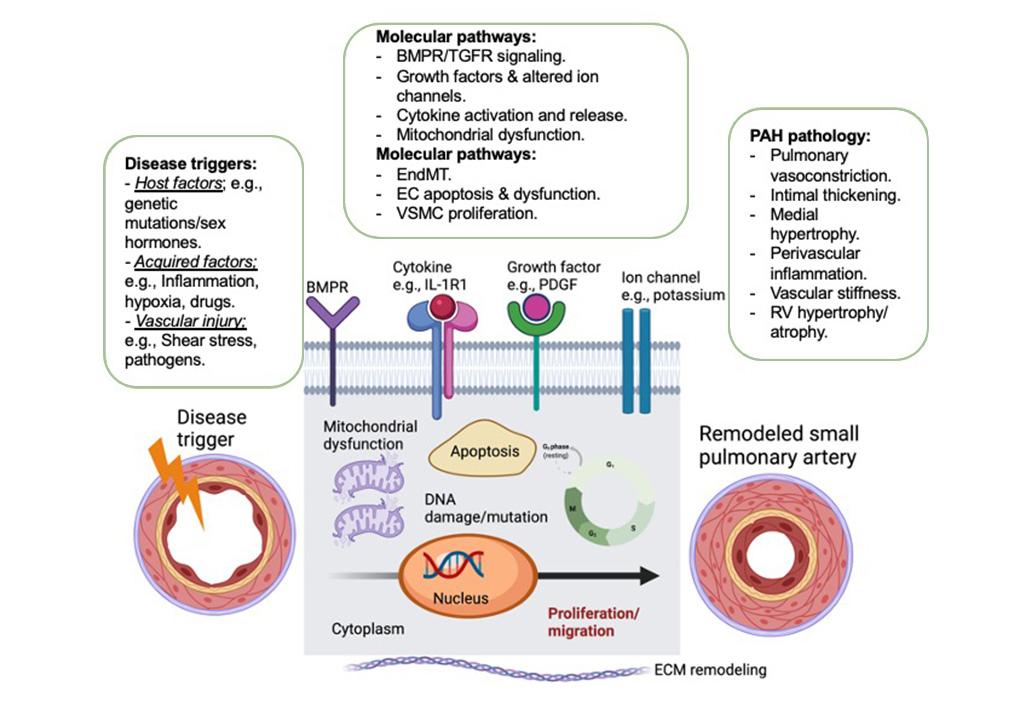The Intramolecular Pathway(s) of Coronary Artery Disease
Targeted Approach: Coronary Artery Disease (CAD) is a leading cause of disease death worldwide. Despite our technical advances, finding a cure is still challenging. In our research group we explore the intra-molecular pathways in individual cellular responses using translational tools from patients with or without CAD to small and large animal-based approaches.

Awards

ATVB Young Investigator Award (2021)
Funding

American Heart Association Career Development Award
events

Gordon Conference Mechanobiology (MA, USA)
Publications

Atherogenic inflammation and plaque formation
Intramolecular Pathway(s) of Unstable Atheroma in Coronary Artery Disease
Coronary artery disease (CAD) is a major health problem with co-morbidities and high mortality rates. Despite our advances, we still do not have a curative therapy to CAD. Atherosclerosis, an underlying progressive disease process, can rupture leading to the sudden death or acute myocardial infarction in CAD patients. The instability of coronary atheroma is largely characterized by high mesenchymal content, large necrotic cores, and more pro-inflammation. We previously have identified the major lesion culprit, interleukin-1 beta, in the endothelium of coronary atheroma in patients of CAD. This project aims at understanding the molecular function of endothelial-to-mesenchymal transition (EndMT), fate and their contribution to the lesion instability


Endothelial cell remodeling in Idiopathic Pulmonary Hypertension:
Idiopathic pulmonary arterial hypertension (IPAH) is increasingly diagnosed in elderly patients who have an increased risk of co-morbid atherosclerosis. Once diagnosed, the median survival rate is 2.5 years with poor prognostic outcomes. The underlying pathology in IPAH is very complex yet has very remarkable characteristics, including endothelial apoptosis, proliferation, EndMT. Pulmonary endothelium plays important roles in IPAH and several lines of evidence demonstrating EndMT formation and inflammation as contributing factors in the pathogenesis of IPAH.
This project aims at determining how and when endothelial remodeling contributes in process of IPAH and how that can be targeted in IPAH patients.
Upcoming Events
Gordon Conference Mechanobiology
(MA, USA)
Invited for an oral presentation at the “Young Investigators in Cardiovascular Biomechanics and Mechanobiomedicine” Gordon Research Conference.
5th Annual Gulf Coast Vascular Research Consortium (TX, USA)
invited to attend a meeting that will highlighting cutting-edge research in Vascular Biology from world-renowned laboratories as a featured speaker wich will be hosted by Texas A&M, College Station.
.
